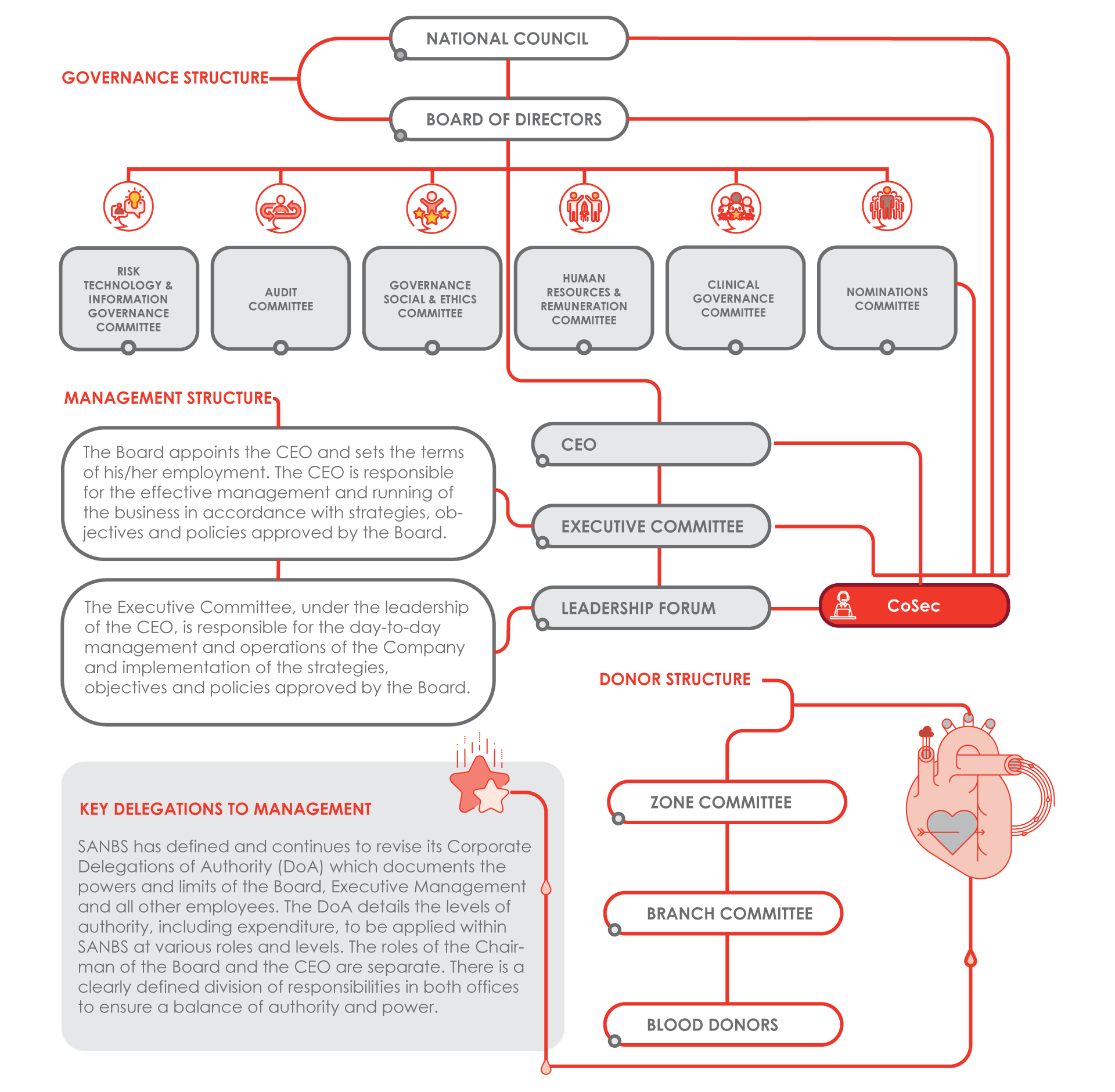OUR GOVERNANCE
Governing Structures and Delegation
Principles 6,7,8,9 and 10
Evaluation and Performance of the Board
Principle 9 applied

The Board ensures that the evaluation of its own performance, and that of its committees, its Chairperson and its individual members, supports continued improvement in its performance and effectiveness.

The Board ensures that assessments are conducted of the individual Directors, the Chairperson of the Board, the Board as a whole, and the Board committees to support continued improvement in performance and effectiveness. Assessments are conducted by an independent external company every two years or when the Board deems it necessary.
The Lead Independent Director is appointed to lead the evaluation of the Chairperson's performance if a Lead Independent Director is not already in place.
An external performance evaluation was conducted in September and October 2023 following the appointment of an external service provider.
All Directors, Co-opted members and Company Secretariat, as well as the six Board committees participated in the evaluation.
Evaluation methodology
The methodology sought to gather comprehensive insights into the governance structure and dynamics, ensuring that the evaluation process encompassed a range of perspectives and experiences. The approach emphasises the importance of thorough documentation review, individual input through questionnaires, and in-depth discussions with board members to inform the assessment and drive improvements in board governance.
Evaluation outcomes
Governance
All participants praised the high quality of governance and the Board's commitment to King IV compliance, with commendable documentation standards and meticulous planning of the Board and committee activities, overseen very professionally by the Company Secretariat.
Board Culture
All participants of the evaluation regarded the board culture as healthy, collegial and robust. Recommendations arising from the evaluation include:
Appointment and Delegation to Management
Principle 10 applied

The Board ensures the appointment of, and delegation to management contributes to role clarity and the effective exercise of authority and responsibilities.
To ensure the effective execution of the SANBS strategy, the Board has assigned the responsibility of implementing the strategy to the CEO. The CEO is entrusted with designing and implementing detailed plans to execute SANBS' strategy.



